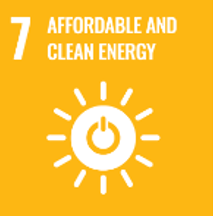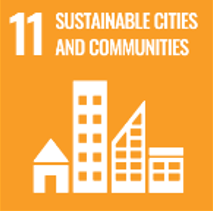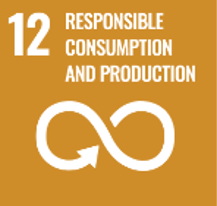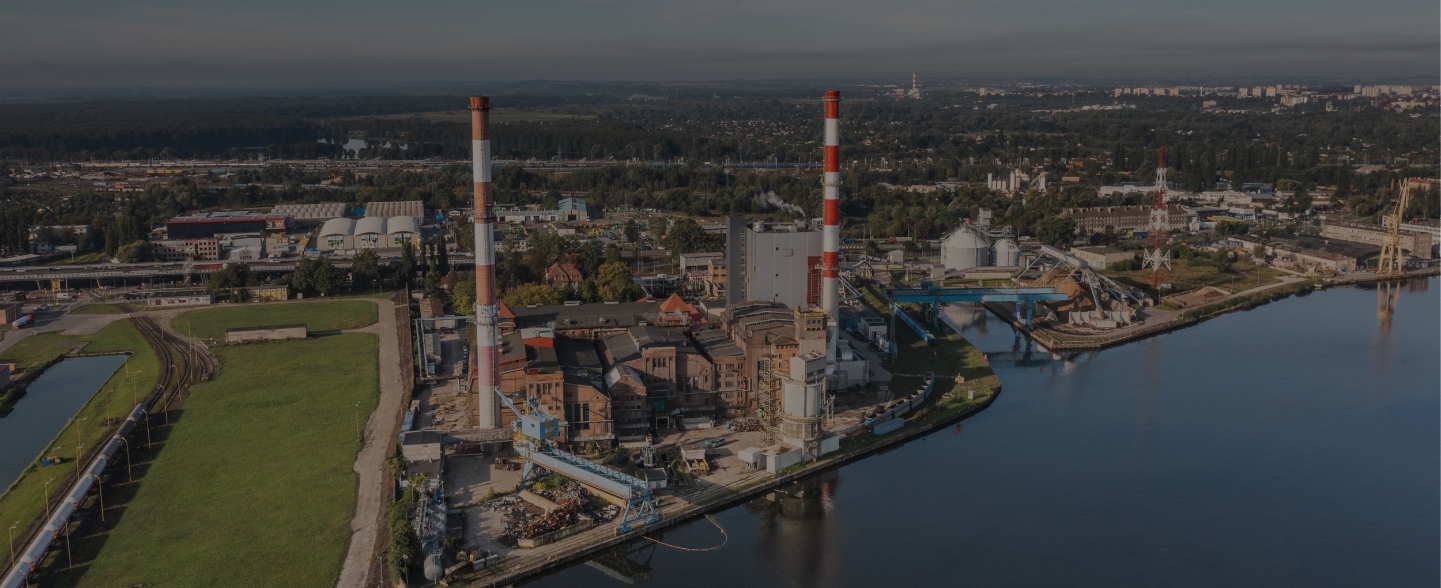-
Own indicator
PGE Group’s strategy adopted in 2020 is aimed at reaching climate neutrality. In the district heating segment, the key date is 2030, when the share of heat generated from zero- or low-emission fuels is to reach 70%. Currently, it is some 30%.
Share of zero- and low-carbon sources in heat generation at 70% by 2030
In line with the strategy, investment decisions for natural gas in district heating will be made by 2025 at the latest; commercialisation of zero-emission fuels (e.g. green hydrogen) or electrification of district heating will be necessary in later years.
Already today, PGE is primarily considering the possibility of developing zero-carbon capacity at each location, with the current feasible decarbonisation of large-scale district heating only possible with natural gas as a transition fuel.
OUTCOMES OF DECARBONISATION IN DISTRICT HEATING
Reduction of CO2 emission (milion tonnes)
New EC Czechnica
June 2021, KOGENERACJA (a PGE Group company) signed a contract for the construction of a gas-fired combined heat and power plant in Siechnice (New EC Czechnica). The new EC Czechnica will have a thermal capacity of 315 MWt and an electrical capacity of 179 MWe and will replace coal-fired units. The unit is expected to be put into service at the beginning of 2024. The value of the contract signed for the investment in Siechnice is PLN 1.160 billion. The construction site has already been handed over to the General Contractor. Within the investment, the construction of a container town has been completed and earthworks have been started for the foundations of the main building and the gas and steam turbine sets. The financial advancement of the project is about 7% and the material advancement is about 5% (as of the end of March 2022).
This investment of key importance for the Wrocław agglomeration has already received the following funding:
- A preferential loan of up to PLN 300 million from the Energy Plus priority program implemented by the National Fund for Environmental Protection and Water Management (NFOŚiGW)
- A subsidy of PLN 50 million from the NFOŚiGW
- A grant of more than PLN 30 million provided under the Environment, Energy and Climate Change Program co-financed by the European Economic Area Financial Mechanism 2014-2021
In March 2021, the individual co-generation bonus for the New EC Czechnica unit was granted in a decision of the President of the Energy Regulatory Office.
Ecological effects - expected emission reduction
Proceeds from PGE Polska Grupa Energetyczna share issue for decarbonisation of district heating
Some of the expenditures on the decarbonisation of district heating will come from funds raised through the series E share issue that took place in the first half of 2022. The total capital expenditure on the construction of the three gas units (EC Kielce, EC Zgierz, EC Bydgoszcz) is estimated at around PLN 460 million, of which PLN 230 million will be financed with proceeds from the share issue.
PROGRAM ASSUMPTIONS
| Electric capacity | Thermal capacity | Entry into service | Total CAPEX | Funding from new share issue | |
|---|---|---|---|---|---|
| EC Zgierz | 15 MWe | 13 MWt | 2023 | PLN 90 million | PLN 45 million |
| EC Kielce | 8 MWe | 14 MWt | 2024 | PLN 70 million | PLN 35 million |
| EC Bydgoszcz | 54 MWe | 41 MWt | 2025 | PLN 300 million | PLN 150 million |
Strategic rationale:
- Filling capacity deficit after shutting down of the WP120 coal fired boiler and two WR-25 boilers
- Construction of a new low-emission cogeneration system with a gas turbine
- Investment execution will cover heat demand in Kielce
Strategic rationale:
- Investment execution will allow to cover heat demand in Zgierz after the old coal-fired boiler OF-100 is decommissioned
- Reducing the carbon intensity of the generating units within the city of Zgierz
EC Bydgoszcz decarbonisation project under the New Issue
Strategic rationale:
- Covering capacity deficit after decommissioning of older coal-fired boilers K1 and K2 in Bydgoszcz
- Reducing the carbon intensity of the generating units within the city of Bydgoszcz
Electrode boilers at EC Gdańsk
In December 2021, a reserve peak load boiler plant with Poland’s first electrode boilers was put into service at PGE Energia Ciepła’s cogeneration plant in Gdańsk. The investment is part of the transition of PGE Energia Ciepła’s district heating assets towards low- and zero-emission. The objective of the change is to gradually replace existing generation sources with new units. The use of electrode boilers in Gdańsk is the first such deployment of this technology in Poland.
The new boilers are powered by electricity produced at the Gdańsk CHP. The technology, which is based on a combination of electrode and oil, and ultimately gas, boilers, enables a quick response to fluctuating heat demand in the power range from 2.5 to 130 MWt and the boiler plant can start operating in just a few minutes.
The new boiler plant consists of two oil-gas boilers of 30 MWt each and two electrode boilers of 35 MWt each. The use of electrode boiler technology at the Gdańsk CHP is an innovative solution in Poland. The new boilers will be powered by electricity produced at the Gdańsk CHP, which today generates energy for the national system.
The Polish district heating system is one of the most developed in Europe and its decarbonisation must take into account the specifics of heat supply to customers. Large district heating systems need stable generating units, such as today's low-emission natural gas-fired cogeneration units. However, we are considering the potential for large-scale heat pumps, electrode boilers or the use of biomass at each of PGE's heat generation sites. At the same time, we are looking at the development of technologies such as green hydrogen, with a view to the future use of zero-emission solutions at PGE's CHPs, in line with the Group's outlined climate neutrality plan for 2050.
2nd waste-to-energy incinerator line in Rzeszów
On May 26 of this year, the CHP branch of PGE Energia Ciepła in Rzeszów signed a contract with a contractor to build the second technological line for a waste-to-energy incinerator.
The second line of the incinerator will be housed in an existing building and will make maximum use of the existing infrastructure that was built during the construction of the 1st technological line, put into operation at the end of 2018. From the outset, the realisation of the incinerator in Rzeszów envisaged the construction of two technological lines with a total processing capacity of 180,000 tonnes of waste per year. Under to these assumptions, the main building was designed together with communication solutions and auxiliary installations. The current capacity of the first line is approximately 100,000 tonnes of waste per year. The capacity of the second process line will be approximately 80,000 tonnes of waste per year.
Under the contract, works related to the installation of the second process line at the incinerator are expected to be completed in the fourth quarter of 2024.
The expanded incinerator system will continue to process municipal waste and recover electricity and heat from it for the residents of Rzeszów connected to the city’s district heating system. The functioning installation contributes to a significant improvement in environmental conditions by reducing landfilling of municipal waste in favour of its on-going processing for energy purposes, and also because of the reduction of fossil fuel combustion in the heat generation process.
As the leader of Poland's energy transition, we are committed to addressing the challenges currently facing the heating industry so that it can continue to function and provide energy security. Thermal waste conversion is evidence of PGE's application of circular economy measures and the use of municipal waste to produce clean energy. Thanks to the new investment, additional heat and electricity will be added to the grid to supply around 15,000 households.
Other decarbonisation projects
Further locations are in the pipeline for projects using gas fuel: EC Gdynia, EC Gdańsk, EC Kraków and EC Rzeszów.
An example of a successful transition implemented is the replacement of a coal-fired CHP plant with a gas-fired one in Toruń. The investment has significantly contributed to reducing the environmental impact while improving the quality of life of the local community.






